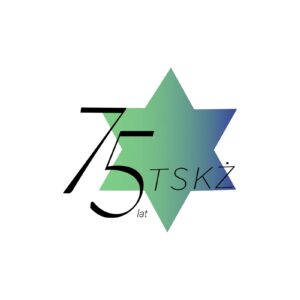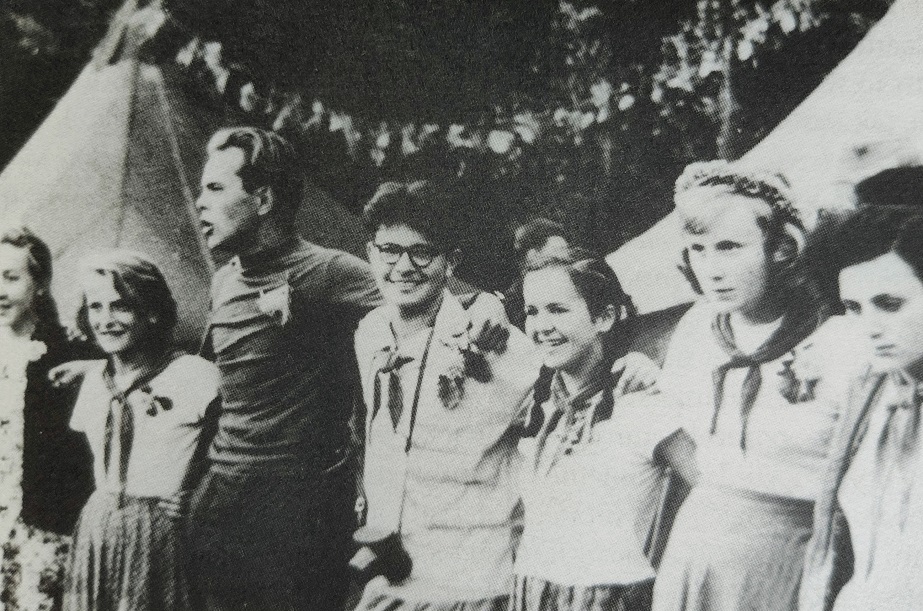The Social and Cultural Association of Jews in Poland [TSKŻ] which emerged in 1950 become the main facilitator of Jewish community live. One of the Association’s key activities included educational efforts, of which scouting was an equally important part.
The historical foundations of Jewish scouting in Poland date back to the interwar period and the numerous youth organisations with a Zionist and scouting profile that emerged at that time. These associations were guided by the idea of civic engagement, which was intended to prepare the youngest generation for Aliyah, i.e. emigration to Palestine. Only a few members of these organisations survived the war. Many of them died fighting in resistance movements in ghettos in the occupied Poland.
In 1947, a group of Jewish social activists established the Jewish Scouting Organisation [ŻOH], which was part of the Polish Scouting Association. Grzegorz Smolar, the then chairman of the Central Committee of Jews in Poland, became the leader of the Organisation. At the turn of 1948 and 1949, ŻOH organised a scouting course in Pierzyce, which was attended by dozens of people. However, most of them soon emigrated from Poland, which quickly put an end to the new association. The renewed hopes for the revival of the scouting movement came with the establishment of the Social and Cultural Association of Jews in Poland in 1950.
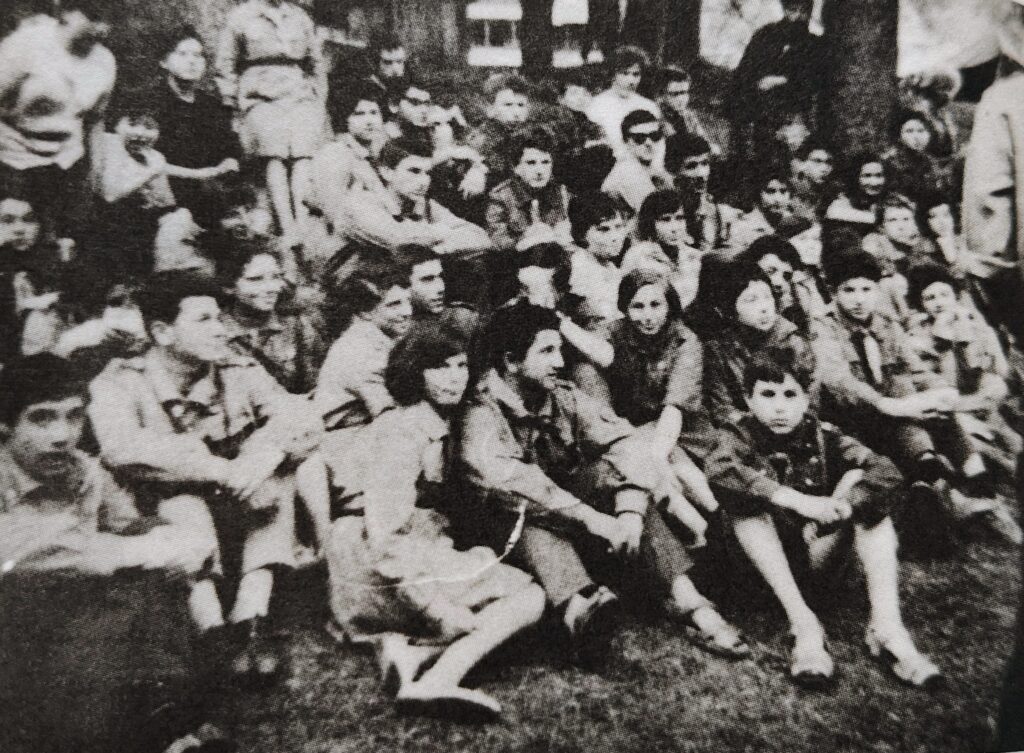
In the mid-1950s, further attempts were made to make scouting activities more professional by organising additional instructor courses, for example in Polanica and Poronin. These meetings provided a space for the exchange of ideas and helped to bridge the generation gap between tutors and young instructors. Course participants emphasised that a scout troop should not be merely an extension of traditional schooling, but an independent educational space based primarily on trust. Over the time, some TSKŻ branches began to operate as fully-fledged scout troops. Although their programme had to comply with the rules of the nationalised Polish Scouting Association (ZHP), the leaders tried to sneak elements of Jewish culture and tradition into their activities. Szmul Tenenblatt, already known for his involvement in organising summer camps for Jewish children, played a key role in reviving the Jewish scouting movement in Poland.
In the autumn of 1959, Zofia Zakrzewska, head of the Polish Scouting Association, sent Jacek Kuroń, who would later become an anti-communist activist and member of the democratic government, to help organise Jewish scout troops. The Union authorities believed that Kuroń, as the commander of the Walter Scout Troop with a strong left-wing and anti-fascist profile, would be perfect for the role. Thanks to his extraordinary charisma, the future politician made a lasting impression on the Jewish scouts. Kuroń was a fascinating person. He had a contagious laugh, he laughed so loud! And he spoke to the point. We had one all-night meeting with him and he devoted the entire time to the topic of the Jewish inferiority complex. That you have to get rid of this complex […] He taught us Jewish pride, even though he himself was not Jewish, and we knew that, of course! […] And he said it very beautifully. He had such a loud, clear voice, with good pronunciation
– as we read in the memoirs of Tolek, one of the camp participants. Kuroń was involved in Jewish scouting not only during summer trips – until 1961, he actively participated in meetings of the Education Committee of the Warsaw Branch of the TSKŻ
Members of the Walter Scout Troop were known for their innovative approach to education and for organizing scout trips during which young people themselves planned, ran and accounted for camp activities. Tolerance was the core value shared by camp participants and their educators. Of course, camps organised by the TSKŻ operated according to similar principles: at those camps, children were taught social responsibility and civic engagement. The leaders of Jewish scout troops encountered numerous difficulties, particularly associated with parental resistance, as scouting was associated with the German youth organisation, the Hitler-Jugend. Scouts also faced hostility from school administrators. In Jewish educational institutions, it was difficult to implement Walter’s ideals of scouting. Teachers did not always understand the need for their independence.
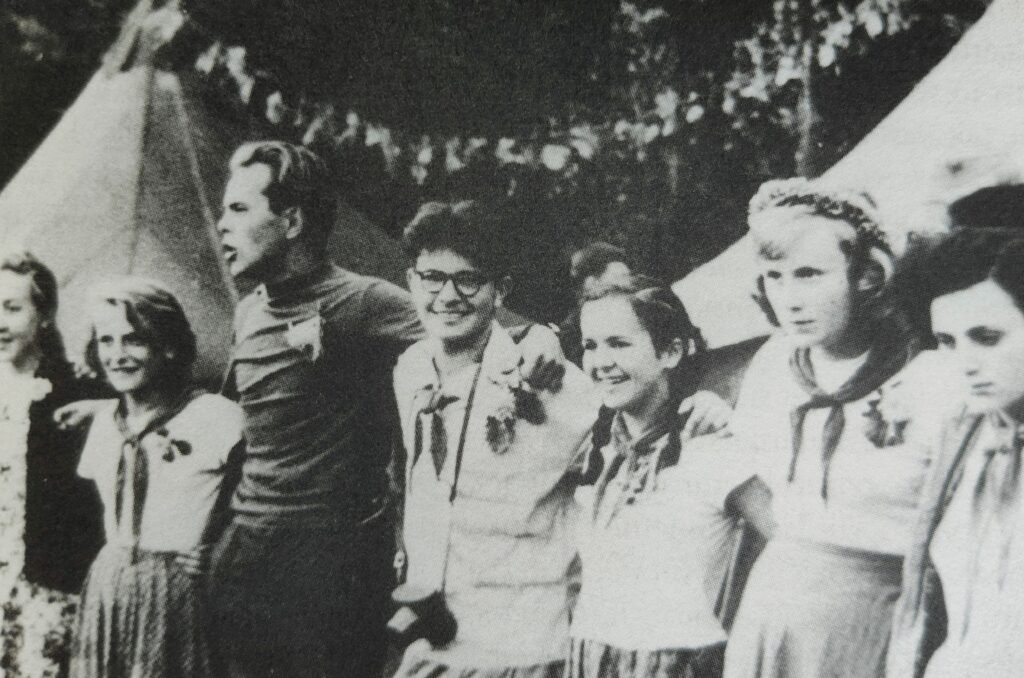
Most of the scouts came from families who had survived the Holocaust by fleeing to the Soviet Union. These children knew their culture, their parents spoke Yiddish, but out of fear of anti-Semitism, they did not encourage their children to learn the language. The second group of participants consisted of the youngest children, whose families had weak ties to the Jewish community. Children from these families often felt alienated among the other participants of the camp. A And there were also those at scout camps who wanted absolutely nothing in common with Jewish culture and community! They knew they were Jewish, but they were so assimilated that they stood out among us like ostriches in the desert. – recalled Leon Rozenbaum. The most distinctive group of camp participants were young people from Warsaw. Their parents, who were connected to the elite party and government circles, did not actively participate in the TSKŻ, although in private they never denied their Jewish heritage. The Warsaw community formed a closed, social circle with a distinct intellectual elite character.
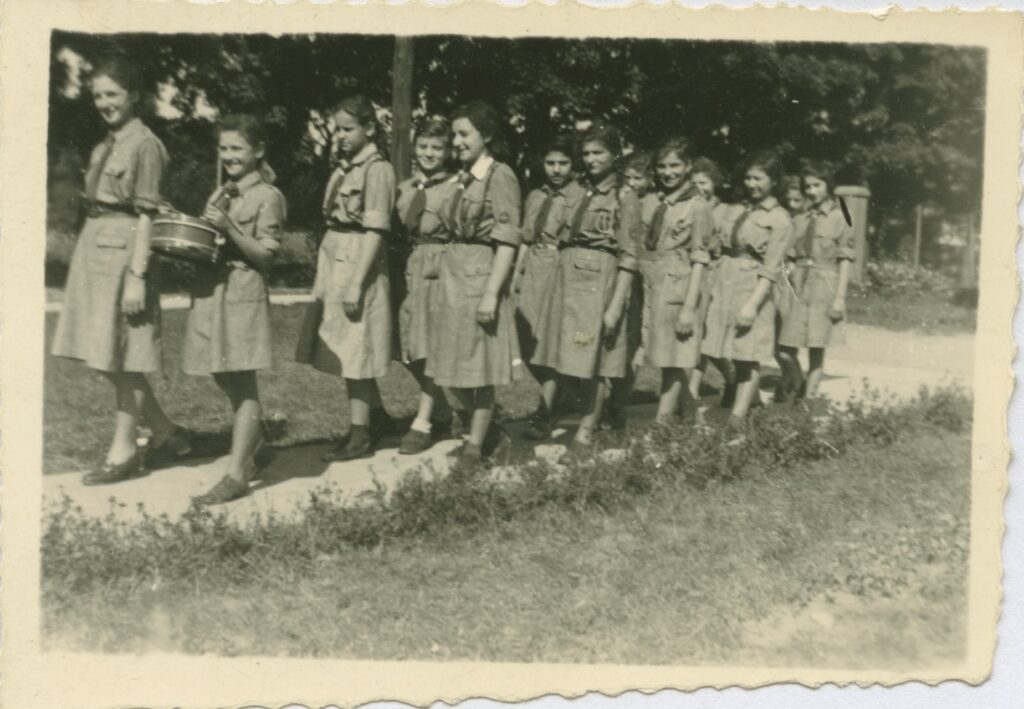
A group of girl scouts in Helenówek near Łódź, Source: TSKŻ
Working with young people was not only about education, but above all about building a sense of community and nurturing identity – both civic and Jewish one. These years of effort put into rebuilding Jewish scouting in Poland were wasted with the arrival of 1968. Young people left the country with their children, sometimes accompanied by their much older parents. For all those involved, scouting and youth movements thus turned into an unrealised dream.
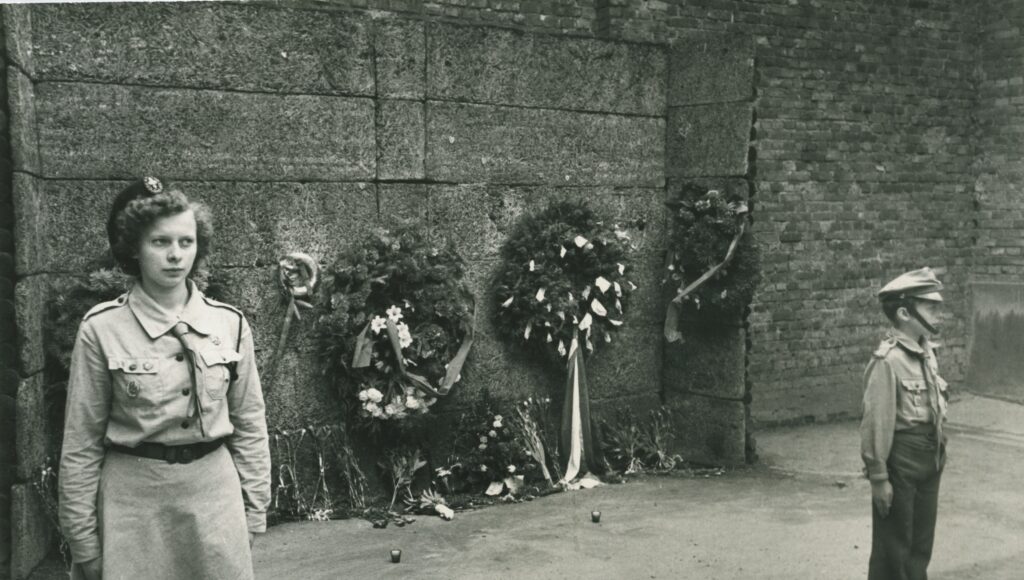
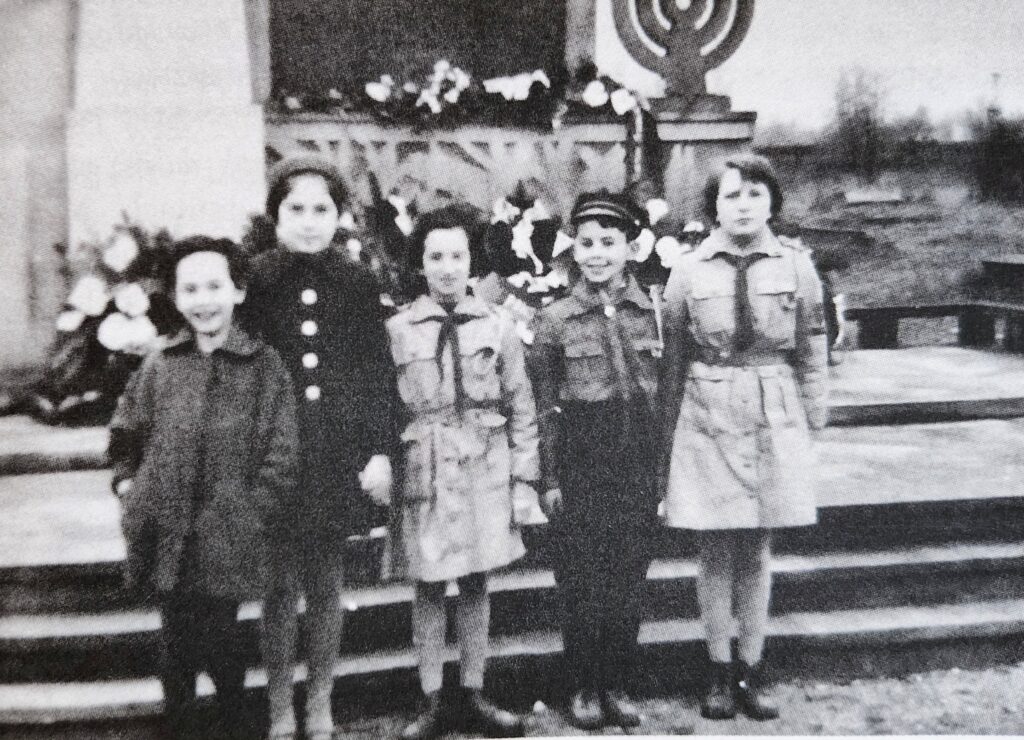
By Marta Rydz
